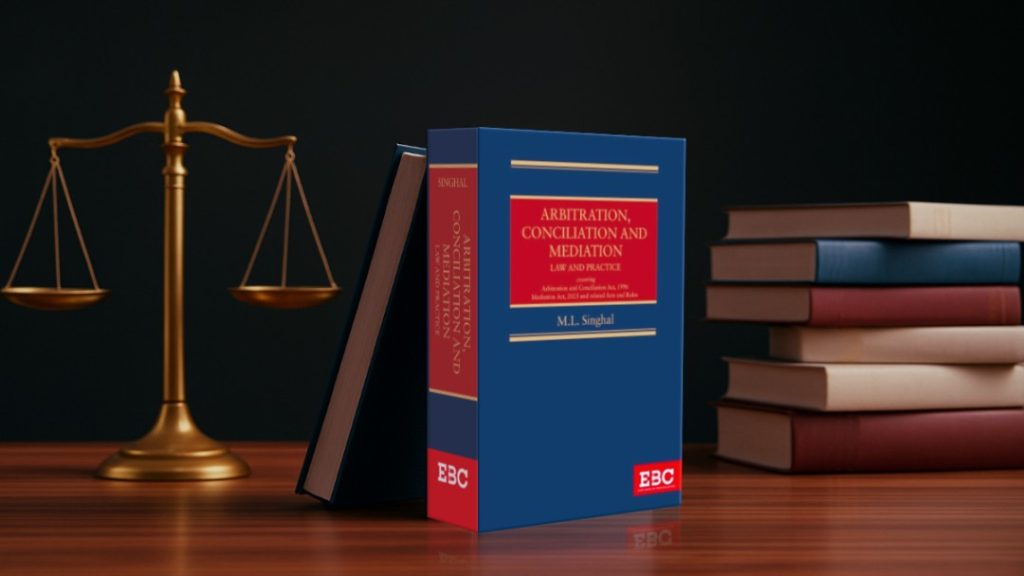
In a time when courtrooms are overwhelmed, legal processes are lengthy, and litigation can drain your time, money, and peace of mind, mediation has emerged as a smarter, faster, and more collaborative way to resolve disputes.
With the enactment of the Mediation Act, 2023, India has taken a significant step forward in strengthening mediation as a formal, legally recognized mechanism for dispute resolution. But what exactly is mediation? When and how can it be used? And why is it becoming increasingly important?
Let’s break it down.
What is Mediation?
Mediation is a voluntary, confidential, and structured process where a neutral third party called the mediator helps disputing parties reach a mutually acceptable solution.
Unlike a judge or arbitrator, the mediator does not impose a decision. Instead, they facilitate communication, identify issues, explore options, and guide parties toward their own resolution.
In essence, mediation is about dialogue over dispute.
Why Mediation Matters More Than Ever
Here’s why mediation is gaining ground in India and globally
- Faster resolution than traditional court cases
- Cost-effective with fewer legal formalities
- Private and confidential unlike public court proceedings
- Preserves relationships, especially useful in family, workplace, or business disputes
- Flexible solutions, as parties can create outcomes that courts may not be able to impose
The Legal Backbone: Mediation Act, 2023
The most significant development in recent times is the Mediation Act, 2023, which aims to institutionalize and standardize mediation in India
Key Highlights of the Mediation Act, 2023
- Statutory Recognition
For the first time, mediation is given a legal framework at the national level - Institutional Mediation
The Act promotes institutional mediation by establishing Mediation Councils and recognizing mediation service providers - Pre-litigation Mediation Made Mandatory
In civil and commercial disputes (excluding specific exceptions), parties must attempt pre-litigation mediation before approaching courts or tribunals - Confidentiality & Non-Admissibility
Anything said or done during mediation is confidential and cannot be used as evidence in any court proceeding - Mediated Settlement Agreement (MSA)
The Act states that an MSA shall be final, binding, and enforceable as a court decree, making it legally robust - Timeline for Completion
Mediation proceedings should ideally be completed within 120 days, extendable by 60 days with mutual consent - Disputes Excluded from Mediation
Certain disputes are non-mediable such as those involving
Criminal offenses
Tax matters
Constitutional issues
Insolvency and bankruptcy proceedings
Types of Mediation in Practice
Understanding the types of mediation helps in choosing the right method for your dispute
| Type | Description |
|---|---|
| Court-Annexed Mediation | Referred by courts, often through Mediation Centers |
| Private Mediation | Parties voluntarily choose a mediator or institution |
| Online Mediation (ODR) | Digital platforms used for remote mediation, gaining popularity post-COVID |
| Community Mediation | Used in family, neighbourhood, or local disputes to restore harmony |
Who Can Be a Mediator?
According to the Act, a mediator must
Be of sound mind and above 18 years of age
Possess qualifications and training as specified by the Mediation Council of India
Be impartial and not have any conflict of interest in the matter
Even retired judges, lawyers, subject-matter experts, or trained professionals can act as mediators, depending on the nature of the dispute
Advanced Elements of Mediation
As mediation matures in India, several advanced features are coming into focus
Hybrid Dispute Resolution (Med-Arb or Arb-Med)
Combines mediation with arbitration, allowing parties to attempt a negotiated settlement first, and if that fails, proceed to binding arbitration
Online Dispute Resolution (ODR)
Technology-enabled platforms that allow remote mediation, digital document sharing, and virtual negotiations, especially useful for cross-border and commercial disputes
Mediation Ethics and Neutrality
The Mediation Act and institutional codes emphasize neutrality, informed consent, voluntariness, and confidentiality, which are core principles that ensure trust in the process
Common Examples of Disputes Resolved by Mediation
Mediation can be used across a wide range of areas
- Family disputes (divorce, custody, property)
- Workplace conflicts
- Commercial contracts and partnerships
- Landlord-tenant issues
- Neighbourhood or community disputes
- Consumer complaints (increasingly via ODR platforms)
Mediation vs Arbitration vs Litigation — A Quick Comparison
| Feature | Mediation | Arbitration | Litigation |
|---|---|---|---|
| Nature | Voluntary and Collaborative | Binding Decision | Adversarial |
| Decision Maker | Parties | Arbitrator | Judge |
| Time & Cost | Low | Moderate | High |
| Confidential? | Yes | Usually | No |
| Binding Outcome? | Yes, if agreement is reached | Yes | Yes |
In today’s fast-paced world, mediation offers a humane, efficient, and forward-thinking way to resolve conflict. With the Mediation Act, 2023, India has laid down the path for making this method accessible, enforceable, and credible
Whether you’re a lawyer, business owner, or just someone caught in a personal dispute, it’s worth asking
Do you really need a courtroom battle, or can you talk it out through mediation?
If you’re looking to deepen your understanding of mediation along with arbitration and conciliation, we recommend this detailed and practical guide:
Arbitration, Conciliation and Mediation: Law and Practice by M. L. Singhal (1st Edition)
This book offers a comprehensive analysis of all three major modes of alternative dispute resolution, combining legal theory with practical insights — a must-read for students, professionals, and ADR enthusiasts.
















